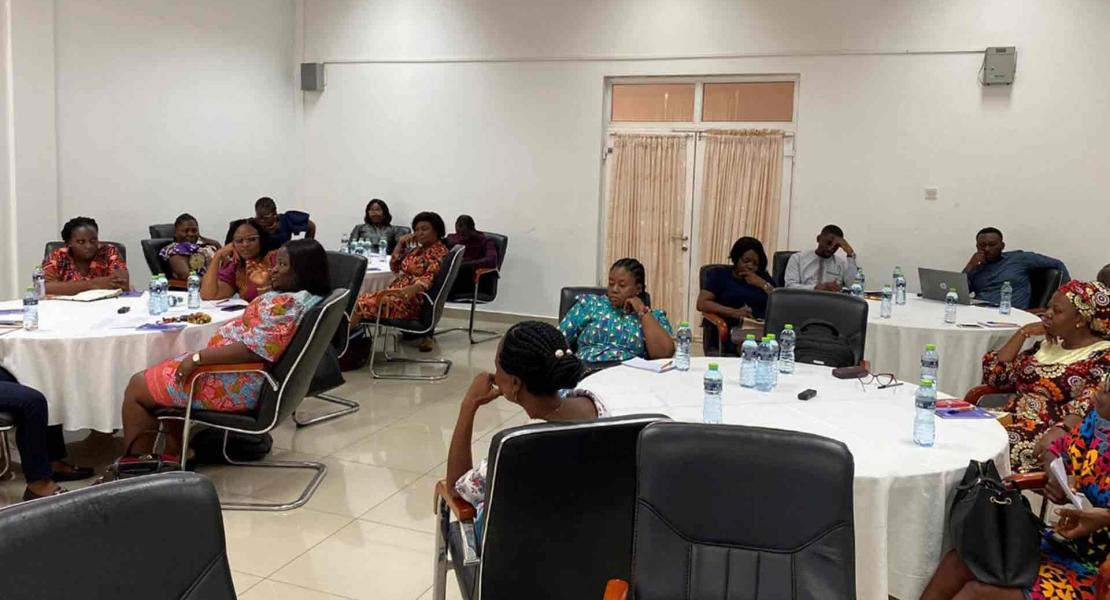The President of the African Centre for Development Research, John Nathaniel Boateng, who is a member of the West African Network of Emerging Leaders in Health Policy and Systems (WANEL) is part of a team of experts working on the project titled, “Rectifying the Effects of COVID-19 on Vulnerable populations in West Africa: a Research action” (RECOVER). The project which is a three-year project started from 2020 and ends in the year 2023.
The RECOVER project seeks to provide a mechanism to bridge the knowledge gap about collateral effects of COVID-19 on vulnerable populations in West Africa. The aim is to facilitate the development of contextually relevant and evidence-informed strategies that strengthen cross-sectoral linkages to deal with collateral effects of COVID-19 on vulnerable populations in the West Africa region, Ultimately, this will enable the sub-region to better manage similar collateral effects during future outbreaks.
The project specific objectives are to:
1) Undertake a rapid assessment of stakeholders, policy and program documents and literature, data and monitoring systems available around collateral effects of COVID-19 on vulnerable populations in the 15 West African countries;
2) Implement deep-dive case studies to identify collateral effects on vulnerability and assess country strategies in addressing them;
3) Co-develop a people-centered and multisectoral framework for policymaking to deal with the collateral effects of COVID-19 on vulnerable populations;
4) Co-develop a regional synthesis that identifies lessons and establishes/strengthens researcher-stakeholder collaborations to manage disease outbreaks and collateral effects with a people-centred and multi-sectoral approach.
The implementation of the RECOVER project is being executed through a consortium which include the West African Network of Emerging Leaders in Health Policy and Systems (WANEL) which is the implementing organization, the Dodowa Health Research Centre of the Ghana Health service which is the grant hosting organization, five implementing partners and an implementation supporting organization. The five implementing partners consists of the Centre of Research in Human Reproduction and Demography (CERRHUD), responsible for the coordination of project activities in country cluster 1 (Benin, Niger and Togo), the Centre for Health Systems and Policy Research (CHESPOR), responsible for the coordination of project activities in country cluster 2 (Ghana, Guinea-bissau, Capo-Verde and Gambia), the African Institute for Health Policy and Health Systems Ebonyi State University, responsible for the coordination of project activities in country cluster 3, (Nigeria), the Africa Center of Excellence for the Prevention and Control of Transmissible Diseases” (CEA-PCMT) of the University Gamal Abdel Nasser, responsible for the coordination of project activities in country cluster 4 (Guinea, Mali, Liberia and Sierra-Leone) and the Institut de Recherche en Sciences de la Santé (IRSS), responsible for the coordination of project activities in in country cluster 5 (Burkina Faso, Senegal, Côte d’Ivoire). The Dodowa Health Research Centre (DHRC) has the responsibility for the administration of the grant through the DHRC-based project manager and the overall coordination of the project through the CERRHUD-based Project Principal Investigator (PI). It is envisaged that the implementation of the project will be grounded in system thinking and continuous learning principles, while applying a gender lens to all the analysis plan that will be adopted.
The Project at the deep dive case study on Ghana explored the gender transformative interventions by the government in supporting vulnerable population during the COVID-19 pandemic.

